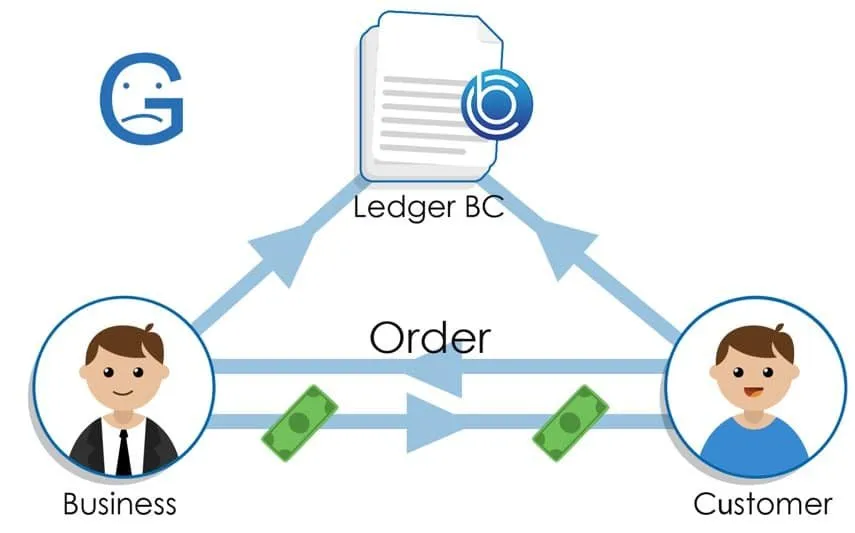[Текст на српском] In the “old times” of Netscape Navigator, you had to browse through Internet, to follow links like a bread crumbs, to find the desired content. Then, in 1995, came first powerful search engine, named Altavista. It was very fast, very thorough, but it was giving so much results that you would need another search engine to search through its results! Then, in 1998, came Google with its “Don’t be evil” motto…
And since then, there are two essential gates to enter Internet — Provider and Google search. It seemed as if some magic was built into Google, which always gave unmistakable results relevant to the user. How did Gооglе always knеw that? By maintain a personal profile and filtering the results according to the information collected about users.
Unfortunately, we had a chance to watch how monopoly changes the behavior of IT giant. Google was involved in the “data harvesting” business relatively early. With almost of 80% of all web searches, Google has discarded its original motto and become a dark force with a clear intention to rearrange World according to the views of a narrow neoliberal “elite”…
Duration: 3:39
They have started meddling into election all over the World, even US, as exposed by Wikileaks, harvesting data became a “normal business model” allowed and encouraged by the US Intelligence Services which could use it as a powerful means of surveillance and control. In the last text I suggested leaving Google… but that is so hard when you do not have a viable alternative. Well, this text is dedicated to Google alternatives.
DuckDuckGo
One of the most popular alternatives is DuckDuckGo, which is centralized, but claims that it doesn’t maintain a personal profile on you like Google does. Its search results are derived from over 400 sources, that include big search engines like Bing or Yahoo, but also DuckDuckGo’s own web crawlers. Here is the most comprehensive comparison between Google searches and the “organic search results” provided by DuckDuckGo…
Duration: 13:23
Yandex
The other centralized alternative is “The Russian Google”, Yandex, which rises very fast and is arguably the most valuable IT company in Europe.
While competing centralized search engines can provide a relieve in the transitional period, we cannot claim the true success until decentralized search engines becomes dominant. So, what do we have in that domain?
A decentralized search engine has to be based on blockchain, ie. distributed ledger technology. Here is a short explanation of what decentralized search engines are and why they are important…
Presearch
Presearch.org is an open, decentralized search engine created in Canada, that rewards community members with PSTs (PreSearch Tokens) for every search, for contribution and promotion of the platform. They have announced crowdsale on July 25, 2017, in preparations to disrupt the world of centralized search engines which trade your data.
So far, Presearch is rather functioning as a decentralized tool of access to many other search engines (yes, including Google), taking the role of a portal which is returning value to its users. Interesting concept which does not deprive you of results, but also does not cut all the connections with the centralized platforms. May be the best of both Worlds… Still in Beta.
BitClave
BitClave’s intentions are to disrupt the marketplace by decentralization, and removal of middleman, connecting business and customers directly…

Their solution is a protocol called BASE, which is the short form for the BitClave Active Search Ecosystem, which rewards relevant queries with a specific amount of tokens called Consumer Activity Tokens (CAT).
BitClave also powers Desearch.com, decentralized search engine specialised in cryptocurrency search.
More about BitClave you can read at this link.
IPFSearch
One of the building blocks of a new Internet is so called InterPlanetary File System (IPFS), or rather Internet P2P File System — or Distributed Web. IPFS does not depends on a single centralized server, and is therefore much more resilient to any kind of catastrophe — from the natural ones to the censorship ones. Since there is no single server, search must be done through indexes…
Traditionally, when you search for something on the web, you send your query to a server. The server then (basically) takes your query, looks up the relevant documents in its index, ranks the results and sends the results back to you. This is how search works on Wikipedia, DuckDuckGo or Google.
With IPFS, it is impossible to send your query to a server, because there is no single server. With ipfsearch, your browser first downloads a document that tells it where it can find documents with a given word. Then, it downloads all the relevant documents and does the ranking itself, on your computer.
This means that all your activity is anonymous and no one can see what you search for, but you have to have a search index. Like, for example, this The Pirate Bay Index: /ipns/12D3KooWPqVNa1w8ywjDjNo7o8SpvC6LHBBU96hMMcXpKteg2zMx
The reference index is this Wikipedia article abstracts, compiled by the author Ondrej Sojka, you can find here: /ipns/Qmdy6hkJWgsx4RQatotn48x1j57M3thSMSoKQQG6BpGPsa
IPFSearch is not a lightning fast, and in turn it is impossible to take down an index after it is uploaded to IPFS, just like it’s impossible to take down a torrent.
SearchPayCoin
A new player in the decentralized arena. The authors have described their vision like this:
The vision of SearchPayCoin (SEPY) is to build a self-evolving Blockchain system based on value incentive, which we consider will be one of the most important development direction in the world of Blockchain technology hereafter, from the beginning, SearchpayCoin has an innovative go-to-market strategy to target the most frequent searchers - web workers - and gain early adoption. SearchPayCoin is striving to build an open and transparent ecosystem for all current and future members of crypto community.
It’s a pretty ambitious plan, let’s se how it is going to work out.
Conclusion
The decentralized search engines are at the very beginning. You may find their performance a bit disappointing in comparison to the centralized ones. But remember: it is more than just finding a certain data for a fraction of a second. It is whole new Internet. Better, freer, more secure… There will be improvements in this domain very soon. And next generation will remember Google as we are now remembering Astalavista… I mean, Altavista :)
Please, if you know a better decentralized search engine than these listed, add it to the comments to this text. Let’s break monopoly that destroys freedom of the net!



Universal Basic Income



